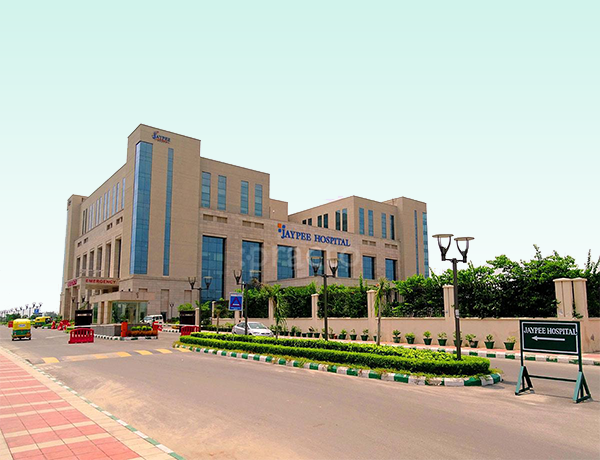Pulmonary Hypertension
Pulmonary hypertension (PH) is a general diagnosis that means you have high blood pressure in your pulmonary arteries. These are the blood vessels that carry oxygen-poor blood from your heart to your lungs. Pulmonary hypertension has many different causes. It’s usually a complication of heart disease or lung disease. However many other diseases and environmental factors can raise your risk for PH. Pulmonary hypertension is dangerous because it disrupts the flow of blood through your heart and lungs. High blood pressure in your pulmonary arteries causes these arteries to become narrow. As a result, your heart must work harder to pump oxygen-poor blood to your lungs.

Symptoms
Symptoms of PH can vary but often include:
Shortness of Breath: Especially during physical activity.
Fatigue: Due to the heart working harder to pump blood.
Chest Pain: Discomfort or pressure in the chest.
Dizziness or Fainting: Resulting from decreased blood flow to the brain.
Swelling: Particularly in the ankles, legs, and abdomen due to fluid retention.
Causes
PH can be caused by various factors, including:
Idiopathic: In many cases, the exact cause remains unknown, leading to idiopathic PH.
Hereditary: Some individuals have a genetic predisposition to develop PH.
Underlying Medical Conditions: Conditions such as connective tissue diseases, congenital heart defects, or chronic lung diseases can lead to PH.
Blood Clots: Blockages in the pulmonary arteries can increase pressure.
Drug and Toxin Exposure: Certain drugs and toxins can contribute to PH.
Diagnosis
Diagnosing PH involves:
Medical History: The doctor will inquire about symptoms, risk factors, and family history.
Physical Examination: Including listening to the heart and lungs and checking for signs of PH.
Imaging: Tests like echocardiography, chest X-rays, and CT scans help evaluate heart and lung function.
Pulmonary Function Tests (PFTs): These assess lung capacity and function.
Right Heart Catheterization: The gold standard for diagnosing PH, it measures pressures within the heart and lungs.
Who Needs Pulmonary Hypertension Treatment
PH treatment is essential for individuals who:
Have been diagnosed with PH based on symptoms and diagnostic tests.
Are experiencing PH symptoms that affect daily life, including shortness of breath, fatigue, or chest pain.
Need guidance on managing PH symptoms, medications, and lifestyle adjustments.
When to See a Specialist
Consult a pulmonologist or a specialist in pulmonary hypertension if:
You have been diagnosed with PH or are experiencing PH symptoms.
PH symptoms are worsening despite initial treatment.
You need specialized care for PH, including access to therapies and medications.
Procedure
Diagnosis: PH is diagnosed through a combination of medical history, physical exams, imaging, lung function tests, and right heart catheterization.
Treatment Plan: A personalized treatment plan is developed based on the diagnosis. It includes medications, lifestyle modifications, and regular check-ups.
Medication Management: Medications such as vasodilators, blood thinners, and diuretics may be prescribed to manage symptoms and slow disease progression.
Lifestyle Adjustments: Lifestyle changes may include maintaining a low-sodium diet, staying physically active within recommended limits, and managing comorbid conditions like heart disease.
Road To Recovery
While there is no cure for PH, proper management can help individuals lead fulfilling lives. Recovery involves adherence to the treatment plan, regular medical check-ups, and a focus on overall health.
Risk Management
Managing PH effectively involves minimizing risks such as:
Exacerbations: Avoiding known triggers, adhering to prescribed medications, and following the treatment plan can reduce the risk of exacerbations.
Heart Complications: Regular heart monitoring and management of associated heart conditions can help prevent complications.
Benefits of Pulmonary Hypertension Management
Improved Quality of Life: Effective PH management can reduce symptoms, enhance daily life, and support overall well-being.
Slowed Disease Progression: Proper treatment can slow the progression of PH and reduce the risk of complications.
Enhanced Lung and Heart Function: Maintaining better lung and heart function through treatment helps improve physical capacity and quality of life.
Frequently Asked Questions
Is pulmonary hypertension curable?
There is no cure for PH, but with proper treatment, many individuals can manage their symptoms and improve their quality of life.
Can pulmonary hypertension be reversed?
While PH-related damage cannot be reversed, effective treatment can slow disease progression and improve symptoms.
Are there any specific diets or supplements for pulmonary hypertension?
A heart-healthy, low-sodium diet is often recommended for individuals with PH. Consult your healthcare provider for personalized dietary advice. There are no specific supplements that can cure PH.
Can pulmonary hypertension be managed without medication?
Medications are a key component of PH management, but lifestyle changes and adherence to your treatment plan are also essential for symptom control and disease management.
Can people with pulmonary hypertension exercise?
Exercise can be beneficial, but it should be done under the guidance of a healthcare provider. A tailored exercise plan can help improve physical capacity and overall health.
Treatment Plans
- Trauma & intensive care $59
- Aged Care $29
- Community Services $25
- Diagnosis & Investigation $48
- Medical & Surgical $82
- Mental Health $74
- Rehabitation $24
- Specialised Support Service $19
- Trauma & intensive care $59
- Aged Care $29
- Community Services $25
- Diagnosis & Investigation $48
- Medical & Surgical $82
- Mental Health $74
- Rehabitation $24
- Specialised Support Service $19
Treatians As The Best Choice
Treatians understand that seeking medical treatment abroad can be a daunting experience for patients and their families. That’s why the company offers end-to-end support to its clients, from the initial consultation to post-treatment care. The company provides personalized treatment plans that are tailored to meet the individual needs of each patient, and its team of dedicated professionals is always on hand to provide guidance and support throughout the entire process. Contact us at +91-7982312582, drop your email [email protected]
- Trauma & intensive care
- Aged Care
- Community Services
- Diagnosis & Investigation
- Medical & Surgical
- Mental Health
- Rehabitation
- Specialised Support Service
Service Recipient Says

Oxmox advised her not to do so, because there were thousands of bad Commas, wild Question Marks and devious.
Kolis Muller NY Citizen
Oxmox advised her not to do so, because there were thousands of bad Commas, wild Question Marks and devious.
Kolis Muller NY Citizen



















Oxmox advised her not to do so, because there were thousands of bad Commas, wild Question Marks and devious.
Kolis Muller NY Citizen